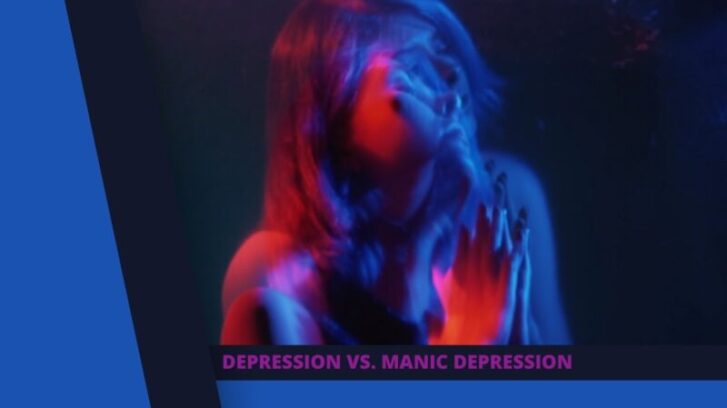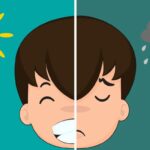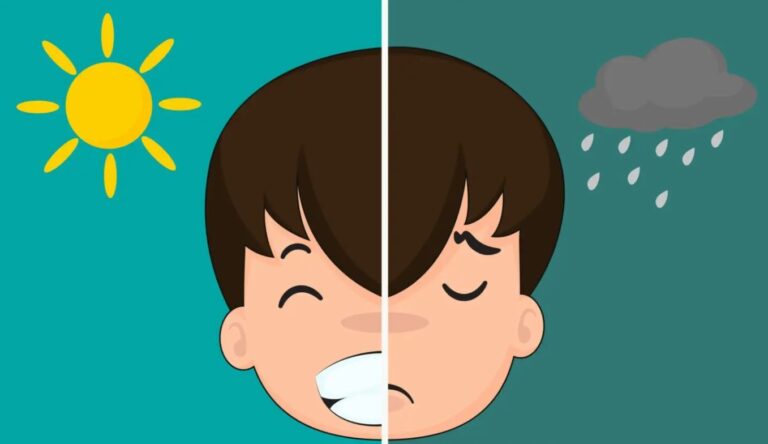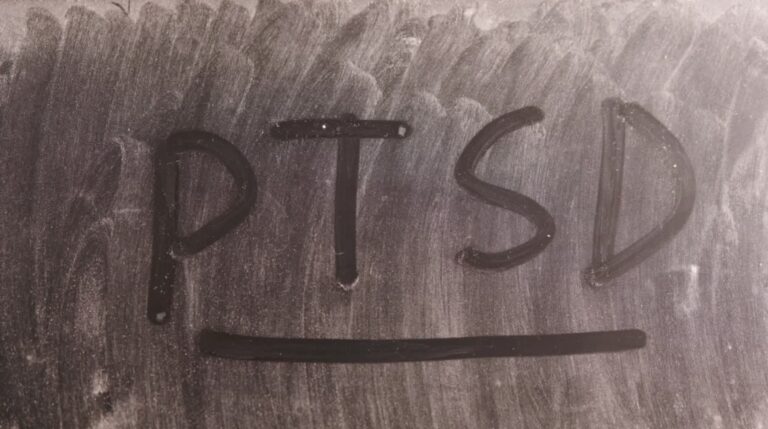Depression, clinically known as major depressive disorder, is a common and serious mood disorder. It’s characterized by persistent feelings of sadness, hopelessness, and a lack of interest or pleasure in activities. It affects how you feel, think, and handle daily activities, such as sleeping, eating, or working.
The exact cause of depression is unknown, but it’s believed to result from a combination of genetic, biological, environmental, and psychological factors. It can affect anyone, regardless of age, but is more common in adults. Treatment for depression often involves a combination of medication and psychotherapy.
It can be debilitating, affecting all aspects of a person’s life. However, with the right treatment and support, individuals with depression can lead healthy and fulfilling lives. It’s important to seek help if you or someone you know is experiencing symptoms of depression.
What is Manic Depression?
Manic depression, now more commonly referred to as bipolar disorder, is a mental health condition characterized by extreme mood swings. These include emotional highs (mania or hypomania) and lows (depression). When you become depressed, you may feel sad or hopeless and lose interest or pleasure in most activities.
During a manic phase, you may feel euphoric, full of energy, or unusually irritable. These mood swings can affect sleep, energy, activity, judgment, behavior, and the ability to think clearly. Episodes of mood swings may occur rarely or multiple times a year. While most people will experience some emotional symptoms between episodes, some may not experience any.
Just like depression, the exact cause is unknown. It’s believed to be a combination of genetic, biological, environmental, and psychological factors. Treatment often involves medication and psychotherapy to manage the mood swings and related symptoms.
The Differences
While both involve periods of depression, they are distinct conditions. The key difference lies in the presence of manic or hypomanic episodes. In depression, these episodes are absent. Individuals experience persistent low moods and a lack of interest in activities.
On the other hand, individuals with mania experience periods of mania or hypomania, characterized by high energy, reduced need for sleep, and increased activity levels. These periods are often followed by episodes of it, creating a cycle of extreme mood swings.
Another difference lies in the treatment. While both conditions can be managed with medication and psychotherapy, the specific types of medication used may differ. For instance, mood stabilizers and antipsychotics are often used in treating manic depression.
The Similarities Between
Despite their differences, depression and manic depression share several similarities. Both are serious mental health conditions that can have a significant impact on a person’s quality of life. They can affect anyone, regardless of age, gender, or socioeconomic status.
Both conditions involve periods of depression, characterized by feelings of sadness, hopelessness, and a lack of interest in activities. They can interfere with a person’s ability to function at work, school, or in their relationships.
Furthermore, both conditions are believed to be caused by a combination of genetic, biological, environmental, and psychological factors. They are both chronic conditions that require long-term management, often involving a combination of medication and psychotherapy.
The Impact on Daily Life
Depression and manic depression can significantly impact a person’s daily life. During a depressive episode, whether in one or another, individuals may struggle with daily tasks, lose interest in activities they once enjoyed, and withdraw from social interactions.
During a manic episode, individuals with manic depression may engage in risky behaviors, have trouble at work or school, and experience strained relationships. They may also have trouble sleeping and concentrating.
Both conditions can lead to physical health problems, such as heart disease and diabetes, due to poor self-care during depressive episodes. They can also lead to suicide if left untreated. Therefore, it’s crucial to seek help if you or someone you know is experiencing symptoms of either condition.
Diagnosis and Treatment
Diagnosis involves a thorough evaluation by a mental health professional. This includes a detailed interview about your symptoms, a physical examination, and sometimes, lab tests to rule out other conditions.
Treatment for both conditions often involves medication and psychotherapy. Antidepressants are commonly used to treat depression, while a combination of mood stabilizers, antipsychotics, and sometimes, antidepressants are used for manic depression.
Psychotherapy, or talk therapy, can help individuals manage their symptoms, cope with their condition, and improve their quality of life. Cognitive-behavioral therapy, interpersonal therapy, and other types of therapy may be used.
Support
Living with depression or manic depression (also known as bipolar disorder) can be challenging, but there are strategies and support systems that can help manage these conditions. Here’s a closer look:
Maintaining a Healthy Lifestyle
- Regular Exercise: Physical activity has been shown to have a positive impact on mood by releasing endorphins, often referred to as ‘feel-good’ hormones. Incorporating regular exercise into your routine can help manage symptoms of both depression and manic depression.
- Balanced Diet: Consuming a diet rich in fruits, vegetables, lean proteins, and whole grains can help maintain overall health and stabilize mood. Certain nutrients, like omega-3 fatty acids and B vitamins, have been linked to improved mental health.
- Adequate Sleep: Both depression and manic depression can disrupt sleep patterns. Establishing a regular sleep schedule and practicing good sleep hygiene can help manage these disruptions and improve overall mood and energy levels.
- Avoiding Alcohol and Drugs: These substances can exacerbate symptoms and interfere with the effectiveness of prescribed medications. It’s advisable to avoid them or consume them in moderation under the guidance of a healthcare provider.
Seeking Professional Help
- Therapy: Cognitive-behavioral therapy (CBT), interpersonal therapy (IPT), and other forms of therapy can provide tools and strategies to manage symptoms and cope with these conditions.
- Medication: Antidepressants, mood stabilizers, and other medications can be effective in managing symptoms. It’s important to take them as prescribed and discuss any side effects with a healthcare provider.
Building a Support Network
- Support from Loved Ones: The understanding and support of family and friends can make a significant difference. Open communication about your condition can help them understand your needs and provide appropriate support.
- Support Groups: Joining a support group, whether in-person or online, can provide a safe space to share experiences and learn from others who are going through the same challenges. These groups can provide comfort, reduce feelings of isolation, and provide practical advice.
- Professional Support: Psychiatrists, psychologists, and other mental health professionals can provide guidance, treatment plans, and ongoing support to manage these conditions.
The Importance of Mental Health Awareness
Mental health awareness is crucial in understanding conditions like depression and manic depression. It helps dispel myths, reduce stigma, and promote early intervention. Awareness can encourage individuals to seek help and can guide friends and family in providing the right support.
Mental health conditions are as real and serious as physical health conditions. They deserve the same level of care, understanding, and respect. By raising awareness, we can create a society that is more understanding and supportive of individuals with mental health conditions.
Conclusion
Depression and manic depression are complex mental health conditions that require a comprehensive understanding. While they share some similarities, they are distinct conditions with different symptoms, causes, and treatments. Understanding these differences is crucial in providing the right support and treatment.
Remember, it’s okay to seek help. If you or someone you know is struggling with symptoms of them, reach out to a mental health professional. With the right treatment and support, individuals with these conditions can lead healthy, fulfilling lives.
















